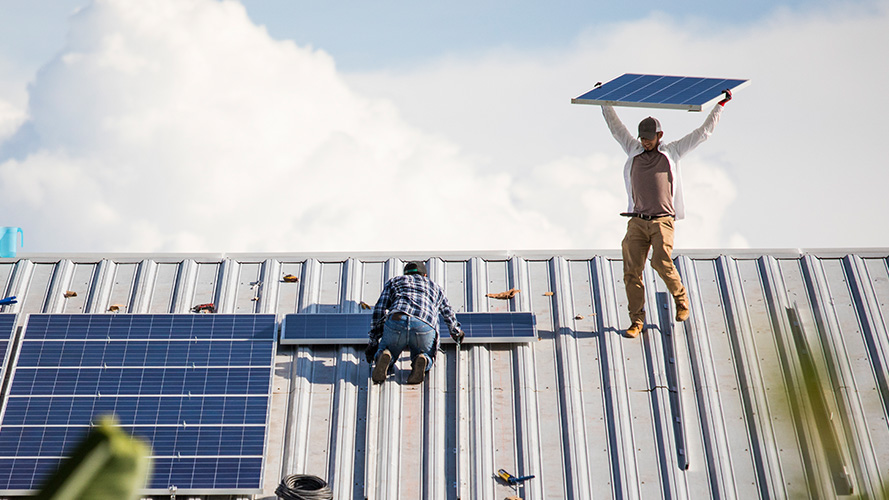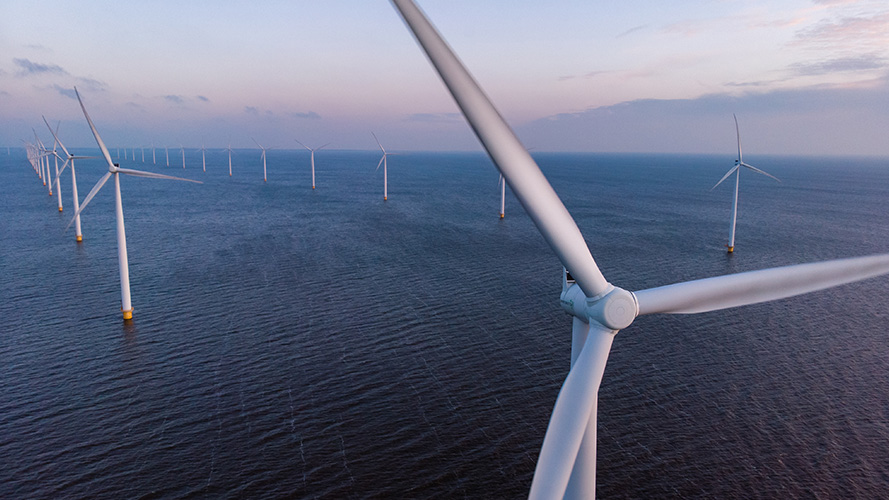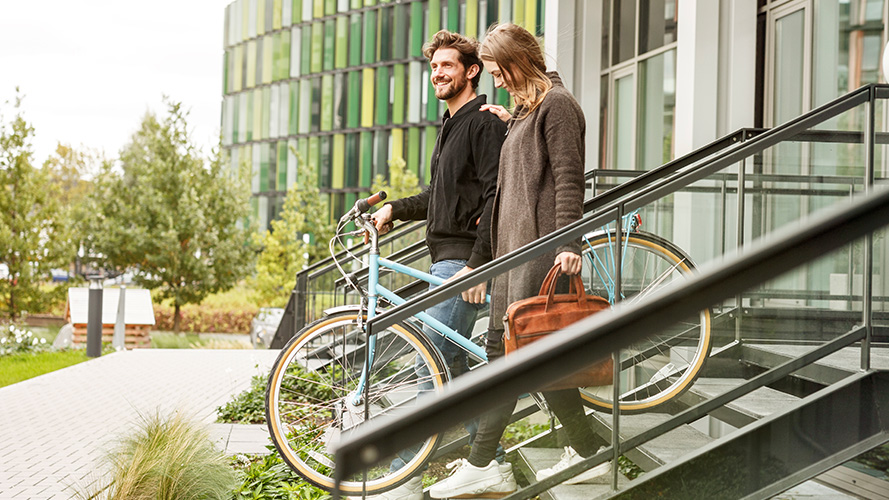The journey to net zero
The climate crisis has reached a turning point. That’s why countries around the world have pledged towards one single, common objective aimed at preventing the damaging effects of climate change from affecting our future.
We’re playing a leading role in mobilizing the transition to a global net zero economy, not just by financing it, but by helping to shape and influence the global policy agenda. It’s a pillar of our ambitions and of our strategy as a business.
Here are a few ways that we’ve committed as a group to building a net zero future:
- By becoming a net zero bank by 2030
- By supporting our customers as they transition to a low carbon future – especially in carbon-challenged countries
- By accelerating new climate solutions
- By inspiring our customers to invest to support positive change

Everyday steps to a sustainable future
The first step towards sustainability is to reduce the carbon footprint of your everyday activities. We looked at our customer journey and introduced measures to reduce the carbon footprint of our everyday services, while making our banking experience even more convenient.
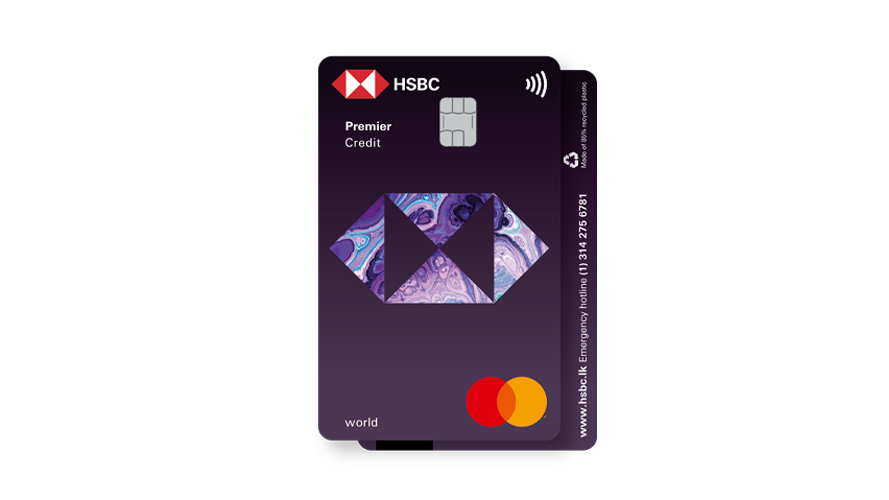
Key Highlight
HSBC was the first bank to launch recycled plastic credit and debit cards in Sri Lanka.
HSBC Cards are made from 85% recycled plastic! With a reduction of 7g of CO2 per card, these cards are less harmful to the environment.

Introducing you to our services
| Then | Now |
|---|---|
| Use of pamphlets and brochures as sales materials resulting in paper usage | Equipped our sales agents with electronic tablets to avoid unnecessary printing and paper waste. We are also shifting heavily towards digital marketing where most of our sales campaigns are online |
| Then | Use of pamphlets and brochures as sales materials resulting in paper usage |
|---|---|
| Now | Equipped our sales agents with electronic tablets to avoid unnecessary printing and paper waste. We are also shifting heavily towards digital marketing where most of our sales campaigns are online |

How you sign up for HSBC
| Then | Now |
|---|---|
| Signing up for a credit card requires you to fill in lengthy application forms and visit our branches for in-person verification. | Fully online sign-up process which completely eliminates the use of paper and reduces CO2 emission from having to travel to the bank or bank staff having to meet customers in person. |
| Signing up for a new account requires a visit to the bank and more paper documentation. | Sign up online via our state-of-the-art customer verification tool and the investments we have made in technology such as Adobe Live Sign, eKYC and Smart Forms have made us roll out a paperless onboarding journey. This further eliminates the need for unnecessary visits to the bank or wastage of paper. |
| Then | Signing up for a credit card requires you to fill in lengthy application forms and visit our branches for in-person verification. |
|---|---|
| Now | Fully online sign-up process which completely eliminates the use of paper and reduces CO2 emission from having to travel to the bank or bank staff having to meet customers in person. |
| Then | Signing up for a new account requires a visit to the bank and more paper documentation. |
| Now | Sign up online via our state-of-the-art customer verification tool and the investments we have made in technology such as Adobe Live Sign, eKYC and Smart Forms have made us roll out a paperless onboarding journey. This further eliminates the need for unnecessary visits to the bank or wastage of paper. |
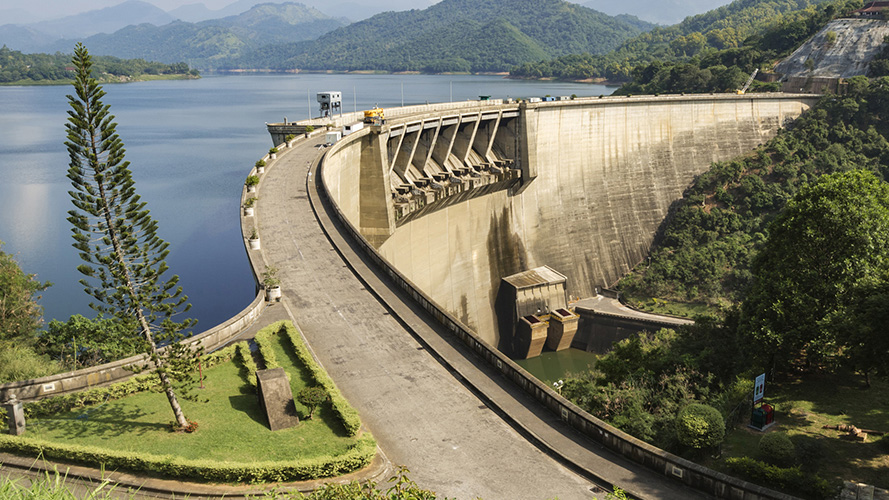
Getting started with sustainable banking
| Then | Now |
|---|---|
| Welcome kits containing printed brochures is couriered to customers. This results in paper waste and fuel usage by postage and courier services increasing carbon emissions. | Digital welcome kits are shared via email when the registration process is completed. |
| Debit and Credit Cards issued by the bank are made of single-use plastics which are difficult to recycle. | All cards issued by the bank are made from 85% recycled plastic, which is less harmful to the environment. HSBC Sri Lanka was the second market to introduce the rPVC cards globally, and the first bank in Sri Lanka with a recycled plastic card. Globally, the move from HSBC to switch to recycled plastic cards helps CO2 emissions reduce by 161 tonnes per year and plastic waste reduce by 73 tonnes per year. |
| Then | Welcome kits containing printed brochures is couriered to customers. This results in paper waste and fuel usage by postage and courier services increasing carbon emissions. |
|---|---|
| Now | Digital welcome kits are shared via email when the registration process is completed. |
| Then | Debit and Credit Cards issued by the bank are made of single-use plastics which are difficult to recycle. |
| Now |
All cards issued by the bank are made from 85% recycled plastic, which is less harmful to the environment. HSBC Sri Lanka was the second market to introduce the rPVC cards globally, and the first bank in Sri Lanka with a recycled plastic card. Globally, the move from HSBC to switch to recycled plastic cards helps CO2 emissions reduce by 161 tonnes per year and plastic waste reduce by 73 tonnes per year. |
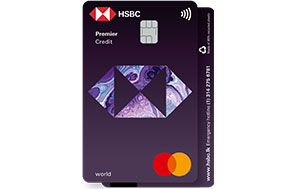

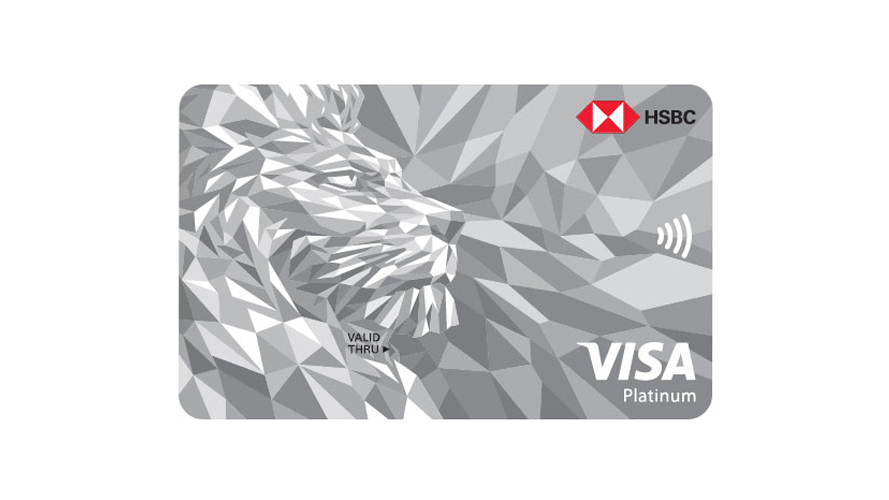

Digital banking that puts sustainability first
Then |
Now |
|---|---|
| Most banking transactions conducted in-person via visits to bank branches. This results in carbon emissions through fuel usage and paper / electricity consumption for processing transactions. | Digital banking services such as HSBC Online Banking and Mobile Banking services allow our customers to enjoy greater convenience while simultaneously avoiding unnecessary wastages. 85% of our transactions are through digital channels with a click of a button. |
| Bank statements sent via post or courier at the end of every month. This contributes to fuel wastage and unnecessary printing of paper. | We encourage customers to sign up for e-statements to reduce carbon emissions caused by printing and distribution of physical statements. 70% of our customers have signed up for e-statements. |
| Announcements, offers, and correspondence sent via post. | Most communications have been shifted to digital channels such as email, SMS and social media. This has minimized paper and fuel wastage. |
Then |
Most banking transactions conducted in-person via visits to bank branches. This results in carbon emissions through fuel usage and paper / electricity consumption for processing transactions. |
|---|---|
| Now |
Digital banking services such as HSBC Online Banking and Mobile Banking services allow our customers to enjoy greater convenience while simultaneously avoiding unnecessary wastages. 85% of our transactions are through digital channels with a click of a button. |
Then |
Bank statements sent via post or courier at the end of every month. This contributes to fuel wastage and unnecessary printing of paper. |
| Now |
We encourage customers to sign up for e-statements to reduce carbon emissions caused by printing and distribution of physical statements. 70% of our customers have signed up for e-statements. |
Then |
Announcements, offers, and correspondence sent via post. |
| Now | Most communications have been shifted to digital channels such as email, SMS and social media. This has minimized paper and fuel wastage. |
Sustainability in your everyday life
Learn about how you can improve your own carbon footprint by making little changes to your lifestyle and making environmentally-conscious purchasing decisions.

Environment Partnerships
Find out how HSBC Sri Lanka is helping working with groups to support the transition to net zero.

Global strategy
As a leading global bank, HSBC is committed to reaching net zero by 2030, and has taken a step beyond just focusing on our network by shaping global policy agendas and influencing clients and partners to commit to lower carbon emissions.
More sustainable ways to bank

Online banking
Simple, fast and easy to use. Do your day to day banking online, 24 hours a day, 365 days a year.

Mobile banking
The bank in your pocket.

Secure Key
Log on securely to mobile and online banking, and authenticate transactions more easily and conveniently.

eStatements
Choose to receive eStatements instead of paper statements.

